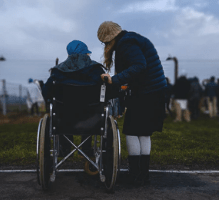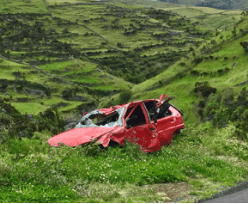Commonwealth Lawyers Association Conference receives warm welcome from Jamaica’s Prime Minister
MONTEGO BAY, Jamaica – Prime Minister Bruce Golding of Jamaica addressed and declared open the Commonwealth Lawyers Association (CLA) conference, which will run from October 16-19 at the Ritz Carlton Hotel in Montego Bay, St. James. Mr. Golding will delivered the address on Friday, October 17.
I welcome you to Jamaica. I applaud the fact that as you convene on your 25th anniversary, you have chosen to do so in Jamaica.
It is a signal honour for us to host this conference especially since it was here in Jamaica that you met in 1986 to adopt the Constitution of your Association. I hope your deliberations will be fruitful, instructive and beneficial to all who participate.
As members of the Commonwealth, we share much in common – many similarities in our history and evolution and, most importantly, a shared jurisprudence. And despite the fact that our legal and judicial systems have been influenced by international conventions and their interaction with other systems, they still constitute a body of principles and practices that define us as a community and render us co-practitioners.
You have chosen as your theme “Justice at Home and Abroad”. It reflects the universality of justice, recognition that the rights of man, his equality and his entitlement to justice under the rule of law, know no boundaries and have no territorial or jurisdictional limits.
You are convening at a time when the justice landscape faces many challenges – some old, some new.
As perfect as justice needs to be, its accessibility and delivery are nowhere perfect. Its deficit will vary from country to country. The causes of that deficit are, themselves, many and varied: from an inadequacy of will to the inadequacy of resources to administrative dysfunctionalities and disruptive cultural norms that unbalance the scale of justice.
Tackling this deficit and redressing these imbalances must continue to be a priority on your agenda.
This conference provides a valuable opportunity for advancing this cause by reinforcing fundamental concepts, sharing ideas and practices and finding common cause in resisting the forces that undermine the system of justice in our respective countries.
But justice faces new global and national challenges. Terrorism, no longer confined to internal conflicts but now internationalized, has led to conflicts between the hallowed principles of fundamental rights and the compelling needs of national security. The 9/11 events and their bizarre implications led many countries including those steeped in Commonwealth traditions to institute measures which would have been inconceivable before and which, even today, are cause for concern that sacred thresholds have been crossed.
The ensuing debate is often polarized between the inviolability of fundamental rights and the inescapability of the duty of governments to protect their citizens. This polarization is not helpful. Fundamental principles and the systems that are built on them must have the capacity to respond to the security of the people they were designed to protect.
Yet, we must be ever mindful of the danger of re-engineering our legal and judicial system to meet the exigencies of the times.
Jamaica is currently grappling with this dilemma. Although we have not been directly affected by international terrorism, we have had to acknowledge our vulnerability and take steps to ensure that we are able to respond. In enacting relevant legislation, we painstakingly sought to calibrate the powers that were seen as being required to deal with this new phenomenon with the duty to respect and safeguard fundamental rights. The structure of that balance will always be the subject of debate.
But we also face threats to our internal security through an intolerable level of violent crime to which an appropriate response must be made. This, too, has ignited debate as to whether that sacred threshold is a safeguard or an obstacle.
The matter is the subject of ongoing deliberations in our Parliament. It is, in one sense, a Jamaican problem that cannot be addressed without reference to the peculiar problem that Jamaica is experiencing. But, in the context of our jurisprudential system, we are not an island. We are part of the Commonwealth family to which our legal and judicial system is umbilically linked. And we are not alone. Other countries face similar threats, albeit with less severity.
Our alignment of that sacred threshold is sometimes a reflection of our passion or outrage. We are, for example, intolerant of child predators and, therefore, may be inclined to be more flexible in our defence of human rights principles in our urge to fix that problem. How movable is the threshold? How movable should it be?
It would, therefore, be useful if, in your deliberations over the next two days, you would devote some time to addressing this dilemma: the defence of human rights against the new, emerging threats to human rights.
It is an issue that is not unconnected to another debate: To what extent should our legal and judicial practices reflect our peculiar culture and value systems or to what extent should fundamental principles be so fundamental that they must be immune to cultural and values-based differences? I am not here entering upon that debate. I make reference to it only to highlight the challenges that our judicial framework will continue to face and the complexity of those challenges.
Lawmakers and policymakers are called to action. Your insight and your input will be valuable to us in defining what that action should be and what it should not be and in ensuring that we synchronize our duty to uphold the rights of our citizens with our equally important duty to secure the safety of our citizens.
Once again, I welcome you to Jamaica, especially those of you who are visiting our shores for the first time. I wish you every success in your conference and it is for me a pleasure and an honour to declare it formally open.



